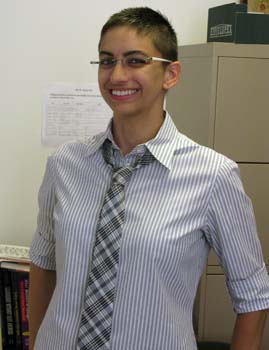About KCC Learning Communities
KCC Learning Communities: Our Story
Kingsborough Community College has developed of a number of learning community programs over a period of over 20 years. The implementation of learning communities at Kingsborough, and their growth and evolution, is the result of college-wide collaborations involving administrators and staff from Academic Affairs; Student Affairs; the Office of the Registrar; the Office of Institutional Research, Assessment, and Planning; and the Center for Academic Writing Success, among others, as well as faculty across Academic Departments, including the Library. Learning communities have impacted our campus and our campus culture, helping us to break down institutional silos, revise policies, reinvigorate our teaching, and help our students succeed. The growth of learning communities on our campus has been data-driven and responsive to the needs of our students, and the integrity of our program has been maintained through a commitment to integrative learning.
Getting Started
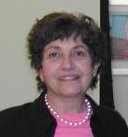
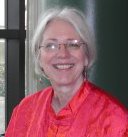
Our first LC experience began in 1995 with the design of a learning community program for ESL students, spearheaded by Profs. Marcia Babbitt and Rebecca Mlynarczyk. In this Intensive ESL Program, five courses were linked: ESL, Speech, the First-Year Seminar (SD 10), Career Exploration (SD 11), and a General Education course such as History, Health, Psychology, or Sociology. Faculty collaborated to integrate and reinforce all courses in the learning community, thereby supporting student success, and created shared, integrative assignments to help students make connections among the courses.
Further, by linking five courses, students had a full-time program through which, in addition to ESL "equated" credits, they could earn eight "real" credits toward fulfilling their degree requirements, helping students progress more quickly toward degree completion. Intensive ESL eventually evolved into a full-year experience, the Accelerated College English (ACE) program, which substituted an Integrated Language Seminar for Career Exploration.
A longitudinal study conducted by Professor Bailin Song (English) compared the academic success of 385 ESL students who began their studies in the Intensive Program with another 385 ESL students who did not. The positive results of that study (reported in Song, 2006) motivated the development of additional learning community programs targeted toward for different student populations.
The MDRC Study
In 2005, we were involved in a nationwide two-year study with MDRC called Opening Doors that focused on developing a learning community program for students with developmental skills needs. Led by Rachel Singer and Peter Cohen, and reflecting a strong collaboration between Academic Affairs and Student Affairs, these learning communities were designed for incoming freshmen and included Developmental English, a General Education course, and the First-Year Seminar. As was the case in Intensive ESL, the inclusion of the First-Year Seminar allowed students to participate in two High Impact Practices in their first semester.

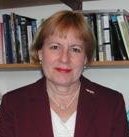
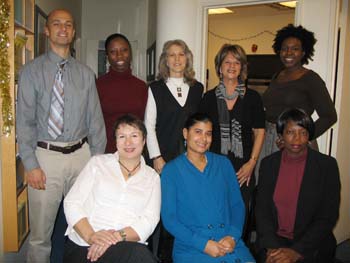
The First-Year Seminar was taught by "case managers" who served as academic advisors, counselors, instructors, and student advocates.
In addition, Opening Doors learning community students received support in developing reading and writing skills through tutoring from the Reading and Writing Center (now the Center for Academic Writing Success), and in developing information literacy skills from librarians who collaborated with course instructors to help create integrative assignments.
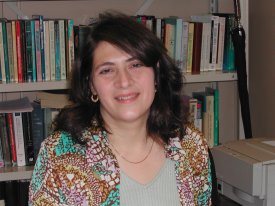
In the MDRC study, half of the incoming freshmen who agreed to be study participants were randomly assigned to learning communities and the other half, serving as the control group, were not. Both groups were tracked with respect to a number of variables identified as indicators of student success. The findings were positive and can be found on the MDRC web site.
Data clearly show that students in Opening Doors are more likely to pass developmental courses than their control-group counterparts. They pass reading and writing skills tests at a rate more than double that of students in control groups, helping them move through remediation more quickly. These data informed the scaling of our program.
Growing Learning Communities
In 2007, in an effort to provide a learning community experience for non-freshmen, we began our Career-Focused Learning Community Program, which linked two courses needed for various career degrees with a one-credit Integrative Seminar designed to help students integrate and apply content from the other courses. This program then expanded to serve Liberal Arts students as well, ans became our Integrative Studies Program.
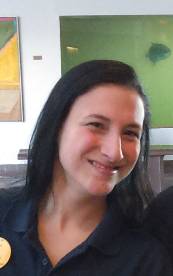
Professional Development
We recognize that, regardless of learning community structure or target student population, at the heart of learning communities is integrative learning. Following suggestions from the National Resource Center for Learning Communities at the Washington Center for Improving Undergraduate Education, we take the backward design approach to building learning communities, starting with the creation of an end-of-semester shared, integrative assignment and working backward to create the course connections, assignments, and activities needed to scaffold students' work toward completion of that assignment. Instructors are supported in their efforts to deepen their collaborations, through a sustained model of professional development that begins pre-semester, extends through the entire semester, and circles back around so that instructors continually assess, reflect upon, and revise their courses to maximally encourage students' integrative thinking.
Bringing it All Together
As we have continued to grow our learning communities, we have collapsed ACE, Opening Doors, and Integrative Studies into a single program: Kingsborough Learning Communities. This move has helped us think beyond rigid learning community structures, and we now have learning communities that range from two to five courses and from one to two semesters; that include a First-Year Seminar, or an Integrative Seminar, or neither; and that are appropriate for freshman or continuing students, for ESL or non-ESL students, and for those with and without developmental needs. In addition, creating a single learning community program has allowed us to consolidate professional development opportunities and share best practices among all instructors teaching in learning communities. Finally, while the shape and content of our learning communities are evolving organically to meet the needs of our students, all learning communities share the common goal of helping students think in an integrative way.
For more information about Kingsborough Learning Communities, please contact a member of our Learning Communities Leadership Team.
